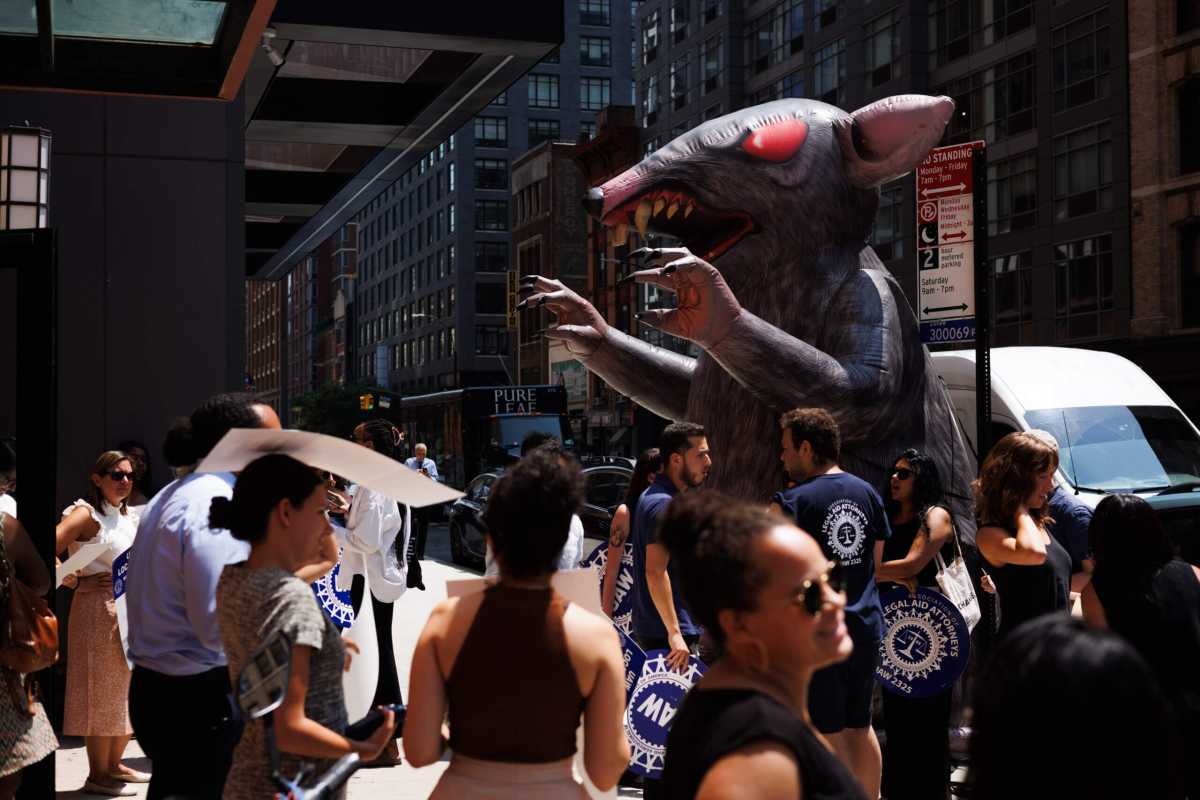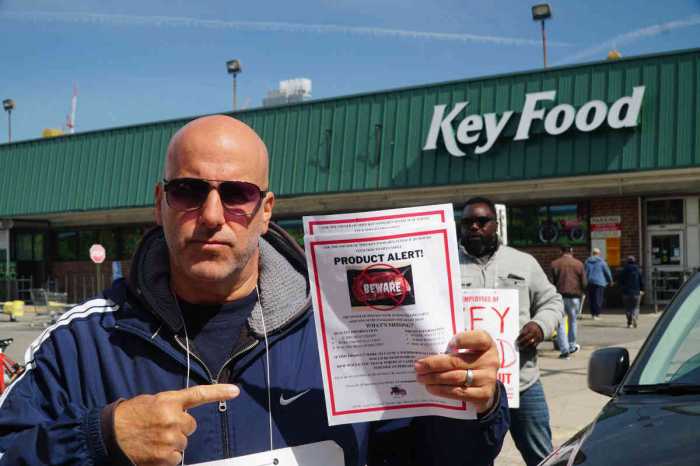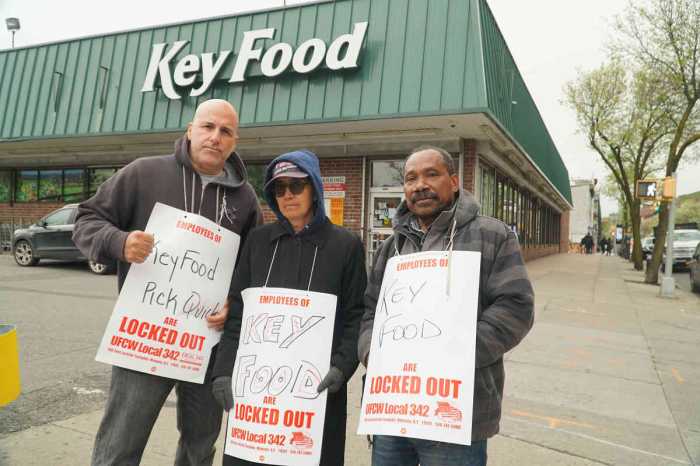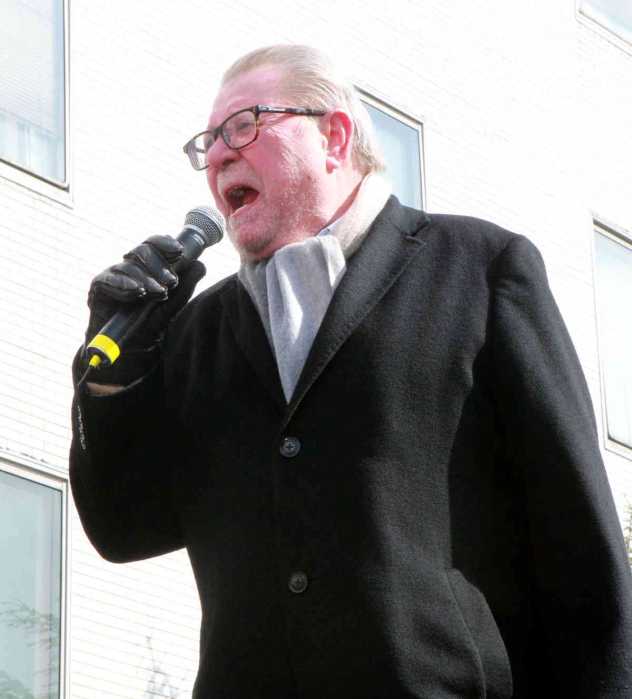Members of the Brooklyn Defender Services union held a lunchtime picket on Wednesday as they remain without a contract nearly two years after they successfully unionized.
BDS union members, which total over 350 employees, voted to unionize in September 2021, and are represented by the Association of Legal Aid Attorneys UWA Local 2325. Last December, BDS union employees were able to vote on their first contract proposal which aimed to improve the workplace and grant employees benefits.
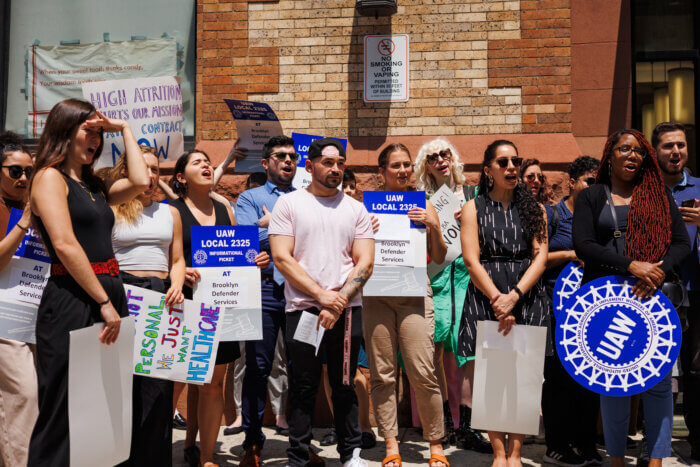
However, since then no notable progress to establish or maintain these benefits has been made, with members of the union accusing management on Tuesday of “making minuscule concessions at the bargaining table,” as first reported by Law360.
Some of the union’s demands include affordable healthcare, livable wages, a flexible and safe workplace, sustainable workloads and reasonable paid time off.
Union members have allegedly been forced to negotiate with management during their free time to fight to reach an agreement that would satisfy the policies and procedures that employees approve of as well as advocate for any necessary improvements.
On the afternoon of July 26, union employees organized outside of BDS headquarters on Livingston Street, joined by other members of the ALAA.
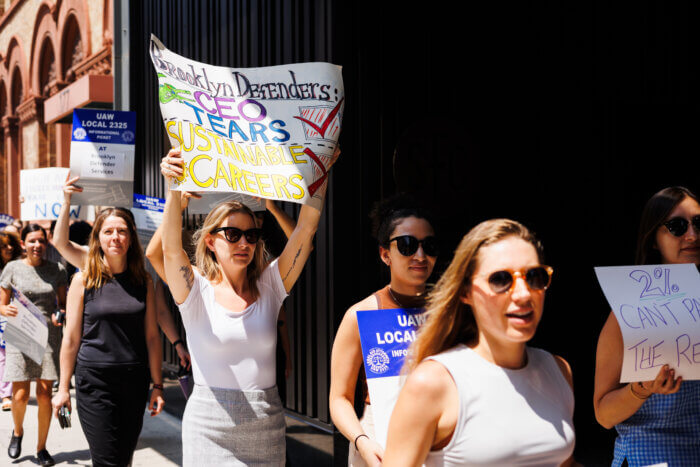
“There has been negligible progress on such issues as affordable healthcare, livable wages, a flexible and safe workplace, sustainable workloads, and reasonable paid time off for BDS employees,” an ALAA union organizer said in a statement on Tuesday. “Historically, BDS management has opposed unionization. Hence, they are not negotiating in good faith now because they are still actively trying to defeat the union by making the negotiating process as protracted as possible, to frustrate the union and rank-and-file members.”
BDS union employees have in recent months been steadily increasing their efforts to negotiate a fair contract. On April 18 of this year, nearly 300 employees signed a petition and marched on employers urging management to bargain in good faith with the union. On May 24, the first lunchtime picket was held while 150 BDS employees participated in a virtual open bargaining session to observe the usually closed-door process held by management.
Notably, on June 29, following another virtual open bargaining session, BDS management negotiated a proposal which seemed to indicate some progress towards finalizing a contract with management proposing a three day in-office week with MetroCards as a solution to the issue of telecommuting.
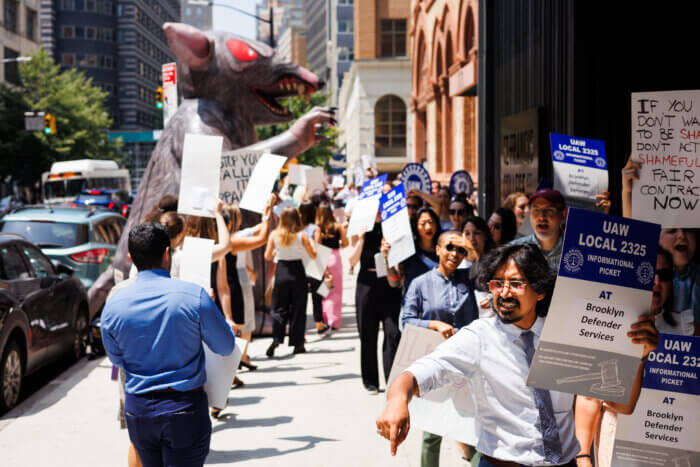
However, according to the ALAA statement, by July 11 management withdrew this proposal, telling union bargainers that “we get the sense you’re trying to negotiate a contract, but this wasn’t a contract proposal, it was just an interim proposal. We want to be able to review in-person requirements whenever we want. We forgot an asterisk.”
Management told union employees that they plan on submitting a new proposal regarding telecommuting, but by this point BDS union members asserted that management was not acting or bargaining in good faith and decided to picket once more on Wednesday.
“BDS management continues to be obstinate, making minuscule concessions at the bargaining table,” the ALAA statement read. “However, despite BDS management’s unfortunate inflexible negotiating posture, BDS employees are committed to reaching a fair contract that protects employees and ensures the well-being of all those doing the important and difficult work of defending BDS clients. BDS Employees and their bargaining representatives will continue their efforts to make their voices heard, encouraging management to engage in good faith to come to a prompt resolution that respects and protects their workers.”
While the BDS has an established Diversity, Equity, Inclusion and Belonging (DEIB) committee, it doesn’t serve to actually advocate for any of the POC employees and instead serves as a method of surface-level ally ship that fails to establish the changes that BDS employees deem necessary.
Murtaza Husain, the POC caucus representative for the BDS bargaining committee, said management has been ineffective in negotiating meaningful and substantial proposals or contracts that meet the needs of BDS employees — and the steps that management does take tend to be superficial.
“The DEIB committee is perfectly analogous of what we are talking about in the bargaining room as well in that we formed the DEIB committee and management loves talking about this committee and [saying] ‘We are committed to diversity and improving conditions and we have this committee’ but it is a lie,” Husain said to Brooklyn Paper. “I am tokenized as a member of that committee as like part of the change that we are making at BDS, when I know — and other people in the committee will tell anyone the same — we haven’t done anything. We don’t do things, we just meet up and echo-chamber amongst ourselves, and then management gets to say we have a committee.”
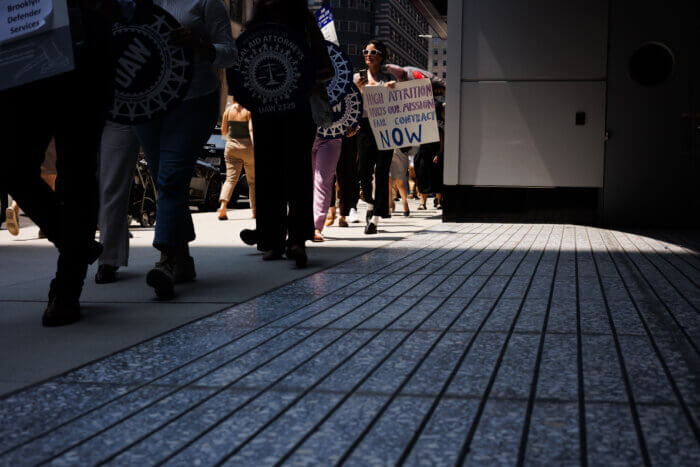
Husain also said that management often claims to be working in collaboration with the union, which is inaccurate.
“The line often is that ‘We’re working with the union, we are working in good faith and collaborating,'” said Husain. “They’ll tell the union ‘We are going to put [something] out in a month and if you have any comments, let us know,’ and so we do it, we give them some comments and we say what would work better if anything and why what they’ve composed is not a good solution for staff, and then they’ll just go ahead and institute whatever they were going to in the first place.”
The alleged steamrolling of union communication has made the working environment unbearable for many BDS employees who have been forced quit and to take other jobs because of burnout and lack of support from upper management, making the already notoriously difficult job of public defense that much more emotionally strenuous, Husain said.
“To me, some of the best people at our office, the best attorneys and representatives for their clients — seeing them work is just magical,” he said. “Over the past two or three months, some of – in my mind – the top list of people have left. And we [the union] do our own little informal exit interview, and they are always citing the conditions at the office just not being worth the intensity of the work. I love my coworkers, I love that we are in this very niche type of work together (…) it is just very meaningful to be working with the people I work with. I love what I do and I know that nothing else I do is going to be gratifying in the way that this job is, it’s just that I wish that management would care about staff that feel that way so that the harder edges of this job — the emotional ups and downs of it — were a little bit more manageable.”
Update, 07/28/23, 12:16p.m.: This story has been updated with comment from Murtaza Husain.


